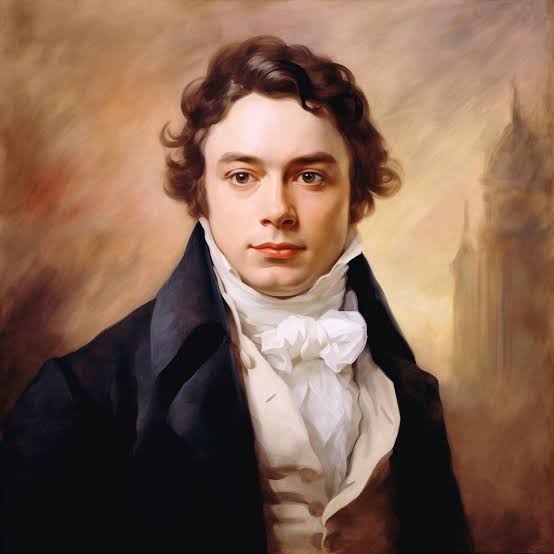The Literary Criticism of S. T. Coleridge: S. T. Coleridge was not only a renowned poet but also a prominent figure in the field of literary criticism. His critical works had a significant impact on the development of literary theory and analysis in the 19th century and beyond. Coleridge’s insightful criticism of literature drew upon his extensive knowledge of philosophy, theology, and aesthetics.
Coleridge’s literary criticism focused on exploring the deeper meanings and themes in literary works. He believed that literature was a tool for exploring human nature, and it was the critic’s job to uncover the underlying messages of a work.
Throughout his career, Coleridge tackled a wide range of literary genres, including poetry, drama, and fiction. His criticism of literature was acclaimed for its intellectual depth and originality.
Key Takeaways: The Literary Criticism of S. T. Coleridge
- S. T. Coleridge was a prominent literary critic and poet who had a significant impact on the development of literary theory.
- Coleridge’s criticism of literature focused on exploring the deeper meanings and themes in literary works.
- He believed that literature was a tool for exploring human nature, and it was the critic’s job to uncover the underlying messages of a work.
- Coleridge tackled a wide range of literary genres, including poetry, drama, and fiction.
- His criticism was acclaimed for its intellectual depth and originality.
Coleridge’s views on literary criticism
S. T. Coleridge was not only a renowned poet but also a prominent critic. His unique perspective as both a poet and a critic gave him a distinctive approach to literary criticism, which continues to influence the field to this day.
Coleridge believed that literary criticism should not just analyze a work of art but should also be an art form in itself. He felt that a critic must have a deep understanding and appreciation of literature to provide valuable insights to readers.
As a poet, Coleridge believed that a critic must approach a work of literature with an open and imaginative mind, allowing the work to speak for itself. He thought that a critic’s role should be to illuminate a work’s hidden meanings, rather than impose their interpretations upon it.
One of Coleridge’s key contributions to literary criticism was his emphasis on organic unity, which he believed was essential to a work’s aesthetic success. He proposed that a work of art should be viewed as a unified whole, with each element contributing to the overall meaning and effect.

Coleridge also believed that a literary critic must have a comprehensive knowledge of the historical and cultural context in which a work was produced. He thought that understanding the context was essential for fully appreciating a work’s significance and meaning.
“A true critic ought to dwell rather upon excellencies than imperfections, to discover the concealed beauties of a writer, and communicate to the world such things as are worth their observation.”
Overall, Coleridge’s contributions to literary criticism were significant and continue to influence the field. His approach, which emphasized organic unity, historical context, and imaginative openness, has provided valuable insights into the study of literature.
Coleridge’s Theories on Literature and Criticism
S.T. Coleridge’s views on literature and criticism have had a significant impact on the field. His theories have shaped the way that scholars and literary critics approach the analysis of literary works and have led to a deeper understanding of the role of literature in society.
One of Coleridge’s most important contributions to literary criticism was his belief in the importance of understanding the historical context of a work. He argued that literature must be seen as a product of its time and that an understanding of the social, political, and cultural factors that influenced its creation was crucial to fully appreciating its significance.
Coleridge also emphasized the role of the imagination in literature. He believed that the imaginative element of a work was what made it truly great and that the best works of literature were those that inspired the reader’s imagination. This view is reflected in his famous definition of poetry as “the best words in the best order.”
Coleridge’s impact on literary criticism can be seen in the development of the Romantic literary movement. His theories on the role of the imagination in literature helped to shape the Romantic emphasis on emotional expression and individualism. In addition, his focus on the interplay between form and content has been influential in the development of modern literary criticism.
Coleridge’s Influence on Literary Criticism
Coleridge’s influence on literary criticism can be seen in the work of later scholars and critics. His ideas about the importance of historical context and the role of the imagination continue to be relevant today and have contributed to a deeper understanding of literary works.
Many scholars have also been influenced by Coleridge’s attention to the emotional and psychological elements of literature. His belief that a work of literature should evoke an emotional response in the reader has led to a greater appreciation of the power of literature to move and affect its audience.
Coleridge’s Impact on Literary Theory
Coleridge’s impact on literary theory has been significant. His theories on the nature of literature and the role of the imagination have influenced the development of modern literary theory and criticism. His emphasis on the importance of form and content has led to a greater appreciation of the ways in which literary works are constructed and has helped to shape the field of literary analysis.
In addition, Coleridge’s emphasis on the subjective experience of reading has had a profound impact on literary theory. His belief that literature should evoke an emotional response in the reader has led to a greater attention to the role of the reader in the interpretation of a work.
“What comes from the heart goes to the heart.”
Overall, S. T. Coleridge’s theories on literature and criticism continue to be relevant today. His contributions to the field have helped to shape the way that scholars and critics approach the analysis of literary works and have led to a deeper understanding of the role of literature in society.
Coleridge’s Approach to Analyzing Literature
Coleridge’s approach to analyzing literature was informed by his background as both a critic and poet. He believed that a work of literature should be examined both as an intricate, self-contained whole and as a product of its historical context.
For Coleridge, close reading was key. He believed that a careful analysis of the language, form, and structure of a work could reveal its deeper meanings and themes. This approach required a deep understanding of the technical aspects of literature.
Coleridge also emphasized the importance of the emotional and psychological elements of a work. He believed that literature had the power to evoke powerful feelings and insights in readers, and that a critic should be attuned to these effects.
Throughout his criticism, Coleridge sought to balance his aesthetic appreciation of literature with a broader understanding of its cultural and social relevance. He believed that literature had the power to shape and reflect society, and that a critic’s role was to explore both the beauty of a work and its connection to the world around it.
Conclusion
In conclusion, S. T. Coleridge’s views on literary criticism and his theories on literature have had a profound impact on the field. His approach to analyzing literature, which emphasizes the interplay of form and content and pays attention to the emotional and psychological elements of a work, remains relevant today.
Coleridge’s ideas on the nature of literature, the role of the imagination, and the importance of understanding the historical context of literary works have also shaped literary theory and criticism over the years. His contributions have inspired and influenced generations of writers and scholars, making him an enduring figure in the world of literature.
The Legacy of S. T. Coleridge
Overall, Coleridge’s legacy lies not only in his work as a poet but also in his contributions as a literary critic. His views on literary criticism, his approach to analyzing literature, and his theories on literature and criticism continue to shape and inform the way literature is read and studied today.
For these reasons, it is important for scholars and readers alike to be familiar with Coleridge’s ideas and to engage with his work. By doing so, we can better appreciate the richness and complexity of literature and gain a greater understanding of the ways in which it can move and inspire us.







